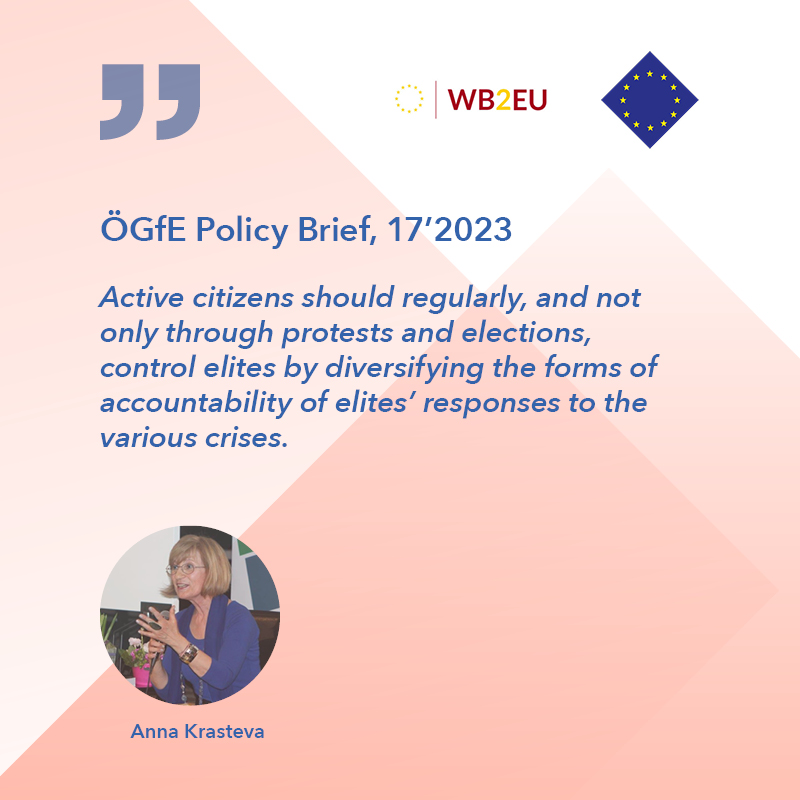Citizens vs. Elites: Symbolic Battles Over the Uses of Political Crises in Bulgaria, Anna Krasteva, ÖGfE Policy Brief, 17’2023
The Policy Brief analyses the symbolic battles between elites and citizens for framing and dominating political crises. Four crises are examined, compared, and mapped along the axes of democracy/post-democracy and civic activism/populist mobilisations. The financial and political crisis of 1997 is the only one that reformist elites and citizens together managed to turn into transformative change. The migration crisis of 2015–2016 consolidated the mainstreaming of populism. The protests of 2020 expressed the maturity of civic activism against oligarchisation and state capture. The 2021–2023 political crisis created by the elites has been virtuously used by them for their own benefit to whitewash their image from purveyor of corruption to guarantor of stability.
Policy Recommendations
- New parties with reformist ambitions, such as We Continue the Change, should seek European legitimisation by joining European political families.
- Protest parties, which are stronger in opposition, should also learn to govern in order to be able to translate protesting citizens’ expectations into policies.
- Active citizens should regularly, and not only through protests and elections, control elites by diversifying the forms of accountability of elites’ responses to the various crises.
At the moment this text is being finalised, Bulgaria is once again flooded with protests. The occasion is particularly cruel domestic violence, and the reason is the inadequate and irresponsible reaction of the institutions, which, with inaction, incompetence, and irresponsibility, in practise protect not the victim, but the aggressor. The mass mobilisations in multiple cities demonstrate the maturity of a citizenry that, albeit after years of relative passivity, is capable of mobilising to demand elite accountability and swift changes in the interests of citizens. Contestatory citizenship is a shield against post-democratic institutions and irresponsible rulers, producing crises instead of resolving them.
Anna Krasteva Tweet

Photo: iLixe48 / Envato


